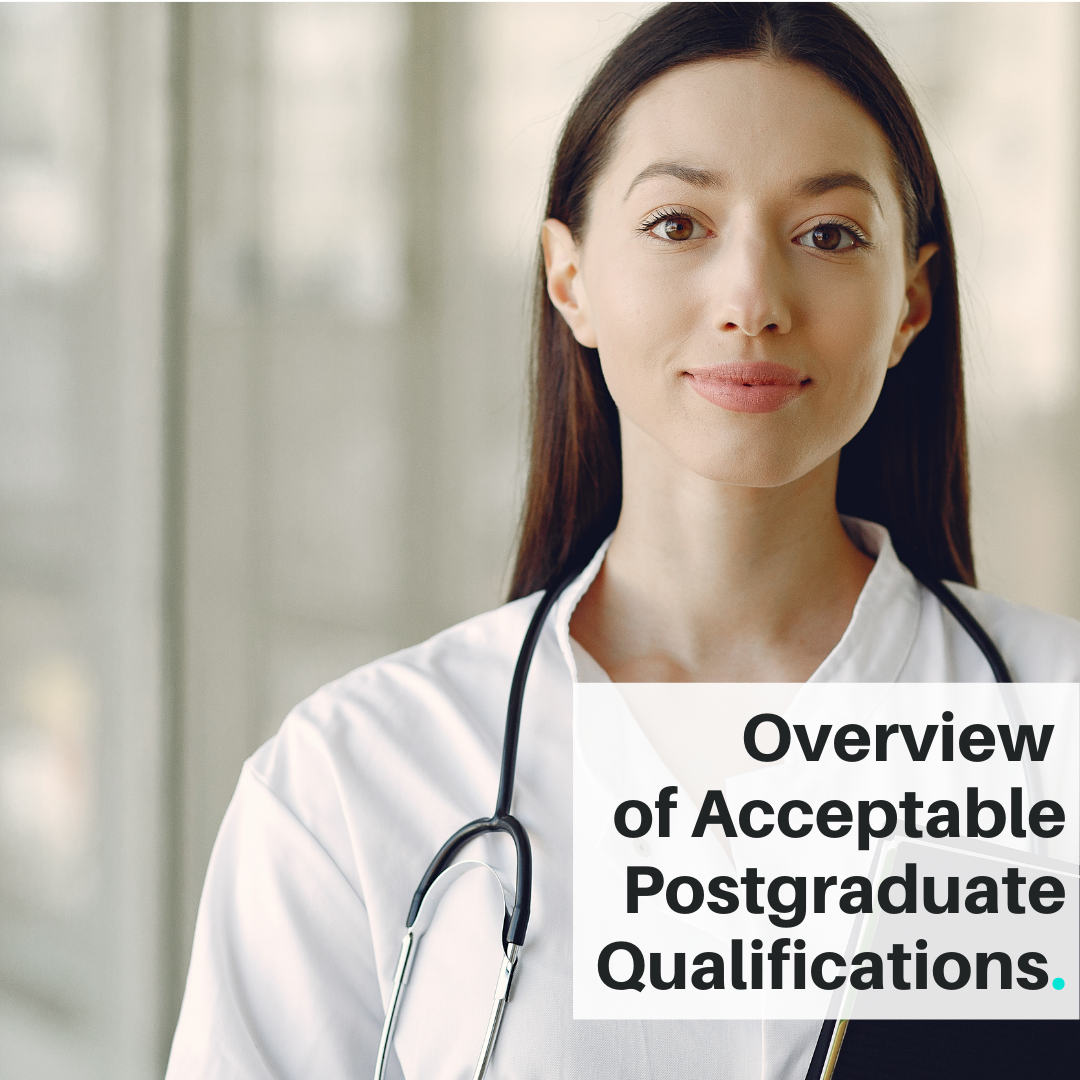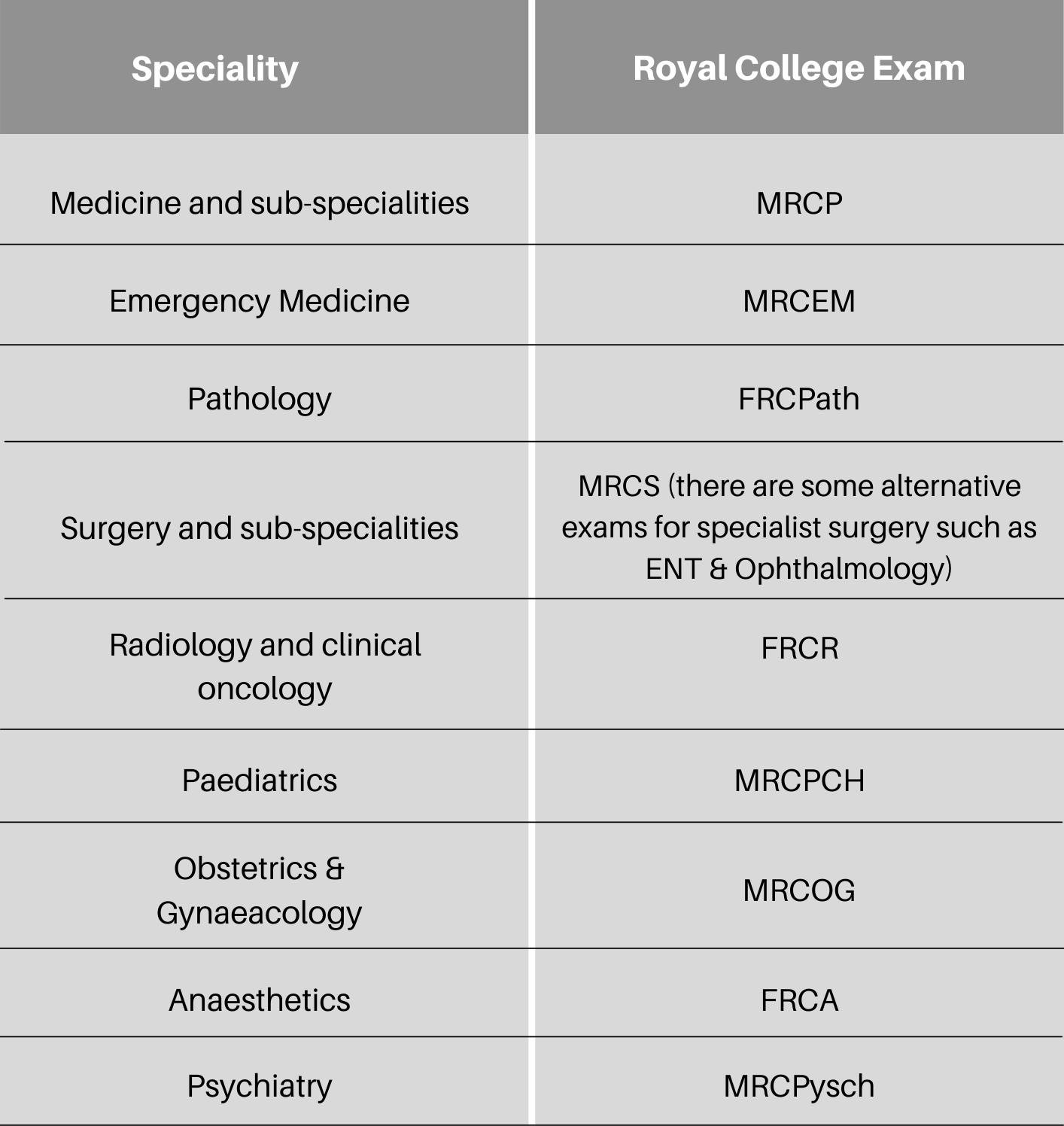
Overview of Acceptable Postgraduate Qualifications
Welcome to the next addition on our series of blogs helping you through the GMC registration process and each route you may take.
In the last blog we explained that you will need to provide evidence of your clinical knowledge and skills, which you can do through two main ways – either via the PLAB test, or by having an acceptable postgraduate qualification.
If you are a Junior Doctor then the PLAB route is recommended; however, if you are a senior Doctor, then we would recommend that you start the journey towards obtaining an acceptable postgraduate qualification – which we are going to provide some clarity and insight on in this blog.
The General Medical Council only accept postgraduate qualifications that they feel are similar to the UK’s medical training and standards. It is a requirement that the postgraduate qualification was attained within three years of applying for a GMC license – otherwise you will have to provide additional evidence of your recent work to ensure you are keeping up to date with modern practice.
If you need to provide evidence of your recent practise, you can do so by filling in a GEN2 report form and sending it to the GMC– you can find the form here.
Which postgraduate qualifications do the GMC accept?
The GMC accepts a range of international postgraduate qualifications which can be used as evidence that you have the necessary knowledge, skills and experience to apply for full registration with a licence to practise - click here to view the list on their website.
What do I do if my qualification is not listed on there?
If your qualification is not listed, then you will need to complete a Royal College qualification.
The Royal College has various exams for different specialities which you can sit.
Below we have created a list of the Royal College exams for each speciality:

The Royal College Examinations listed above cover a wide range of specialities and are usually taken in three parts testing the skills, knowledge and behaviour of Doctors in training via written and practical format.
Due to the COVID-19 pandemic, most Royal Colleges are giving candidates the choice to take the exam socially-distanced in a test centre, or via an online invigilation.
You can sit the exam in various countries, which you can find listed in the links below.
Please see below for each exam and their test centres or available options:
MRCP – Click here for Exam dates and fees.
MRCEM – Click here for Exam dates and fees.
FRCPath – Click here for Exam dates and here for Exam fees.
MRCS – Click here for Exam dates and here for Exam fees.
FRCR - Click here for Exam dates and fees.
MRCPH – Click here for Exam dates and fees.
MRCOG – Click here for Exam dates and fees.
FRCA – Click here for Exam dates and fees.
MRCPysch – Click here for Exam dates and fees.
Due to the majority of the Royal College exams having three or more parts to them, this usually means you will have to pay a separate fee, per separate exam.
Fees can vary from £150 - £1202, however please double-check on the specific exam website on the links we have provided above.
In our next blog we will be giving you an insight into another route which international Doctors can take to progress through the GMC registration process – which is Sponsorship.
If you would like to see the GMC’s guide to acceptable postgraduate qualifications, then please click here.
Alternatively, one of our Medical experts will be happy to speak to you, understand what stage you are at and where you may need help.
Get in touch by emailing them at Dane@kaizenrecruitment.co.uk or Stuart@kaizenrecruitment.co.uk.



